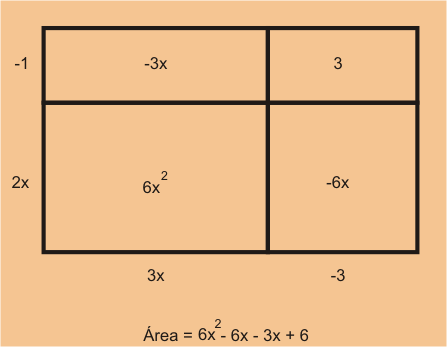The first assignment I always give my students it to write me a letter about themselves. This is my favorite assignment of the year because they're so hopeful and honest. As usual, some of the things they wrote are ridiculous, some funny, and some heartbreaking. Here's a sampling.
Who are you as a person? As a student? What are your interests? Dislikes?
· I really hate spiders. I believe they are pointless creatures in life. Their purpose is probably just another source of food for birds or bats or something. I don’t know why they hide in our houses. They have no reason to hang out up on the ceiling staring at you like they’re going to kill you the second you fall asleep. It scares me. [This section is more than she wrote about anything else]
· I also dislike coffee for 2 reasons. My first reason is that it stunts your growth and I don’t want to have a deep voice and a small body. My second reason is that it has a foul smell.
· My interests are boys and learning more about geometry. [Mine too! We’re going to be BFFs]
· My interest for this school are the IL, camping trip, new people, intercourse, and sports. [Sic, obviously. We call it intersession, but might want to reconsider the name. Might get some kids more interested]
· I don’t like bugs or knives, for some reason I’m very afraid of them.
· My current career plan involves being a synthetic microbiologist. [It never ends well when a kid in my class is already smarter than I am.]
· My name is Y. E. and you should know me already. We met.
· I love different types of food, Mexican, Chinese and probably a lot more, and I am open to try anything even if it ends with my face in a garbage can! [I will have to talk to this kid before he gets to college about whether to stick to this philosophy]
· Well honestly as a student I don’t feel so confident. Some times I tend to fool around a lot when I don’t understand the material so people can’t be able to notice. [This is the exact observation I would have made of this kid so far, but I’m surprised he recognizes it so well about himself]
· I am good at many things… including memorizing irrational numbers.
· I really don’t like people who act like jerks or also beans because I just don’t like beans.
· I would describe myself as a uncertain person as a student… My dislikes are when people think their so smart. [This made me want to cry because I’d already pegged this kid as someone who’s been seriously academically wounded]
· If I was a bear and I was ordered to cut down a tree by an elder it would take me some time to cut down the tree. [?????]
· I’m very interested in things that look interesting, if it looks fun and like something I would enjoy, IM INTERESTED!
What do you want to know or learn about the world? About yourself?
· I want to understand the universe and humanity’s place in it. I probably never will, but I’m going to try anyway. This includes neuroscience and astrophysics and quantum physics and string theory and all of the math along the way. [Guess which student this is]
· What I want to learn about would have to be the past when bows and swords were common items like 17th or 18th century. [Woah]
· I am really good at figuring out problems related to school or socially, but at times I can’t figure out myself. That and girls! I can never figure them out, I don’t think any guy can in that matter. But I’ll just leave that to the experts. [I am dying to know who this kid thinks “the experts” are]
· I want to know why I am a bit shy. [So cute]
· I want to know why I feel dirty like all the time, even after I take a shower. [I don’t even know how to respond to this]
· I want to learn more about alchemy. I am always studying it in my free time. I also want to know more about feudal Japan. Those are the things I love the most. [Woah]
· I want to know why do I have to have a big foot. Why not a small or normal foot.
Your goals this year for Geometry
· My main goal is not just to know everything, but to understand it in a lot of detail so later on in life I will use this knowledge to accomplish a lot. [How do I break it to this kid that knowing geometry is not actually going to help her accomplish anything later in life?]
· I don’t like to achieve I like to overachieve. [Intense]
· I would like to learn how geometry will help me when I’m 28. [Has he already figured out why geometry will help him when he’s 27?]
What have you liked in math or felt successful at? What have you not felt successful at?
· One of the only reasons I do math is because you need to know it when you handle money and I really like having and spending money.
· My worst experience with math was when I was too worried about my grade and leapt at the opportunity to memorize pi for extra credit… I memorized about 300 digits and lost my sanity in the process. I hated pi for it and when it was time to recite it I was surprised I got past the decimal at all, but I got 180 digits. I now know about 40 and pi and I are friends again. [Guess which kid wrote this]
What you think your biggest challenges will be this year
· One thing I despise is homework. If homework was a country I would drop a nuclear bomb on it. [Note to self: do not antagonize this kid]
· I think the biggest challenge for me this year will be trying to pronounce your last name correctly and remembering how to say it every time after I say it correctly.
What you need a teacher to do
· A teacher would need to respect me as a person and not just look at me as another kid they have to deal with.
· What I do not like is when a teacher judges me because I only did one mistake and then they think I’m bad because of that mistake.
· Don’t worry, I can already tell from day 1 that this class is going to be fun! [Little does she know]
Anything else you think I should know
· Well that’s who I am, now who are you? Ponder that!
· Oh! But on Tuesdays (which conveniently was today) I have a very important theocratic meeting to attend to every week and leave a certain amount of time for homework, so I’m freaking out cause I just got back and started writing this last paragraph.
· There are many things you need to know about me and that’s that it’s really tempting for me to write in text form while writing because that’s all I did during the summer text and write in text form.
· A couple things you should know about me is that I often burst into song, I am obsessive over the color pink and I’m in love with Justin Beiber.
I was already in love with this freshman class before reading their letters--they are by far the most enthusiastic group I've ever taught. Knowing that they love alchemy and swords and have been hurt by teachers (and pi) in the past makes me love them even more.



















 I think that this was the tack that our captain called the best tack he'd ever seen. I'm sure he meant that. In general, I can't say I learned much actual sailing. In a rookie teacher mistake, our captain threw out a lot of words without explaining what they meant or how they related to sailing, which naturally made it difficult to understand what he was talking about. It's hard to watch out for the jib when you don't know what you're looking for.
I think that this was the tack that our captain called the best tack he'd ever seen. I'm sure he meant that. In general, I can't say I learned much actual sailing. In a rookie teacher mistake, our captain threw out a lot of words without explaining what they meant or how they related to sailing, which naturally made it difficult to understand what he was talking about. It's hard to watch out for the jib when you don't know what you're looking for. 
















